Lecture Series
Join us for the Darwin College Lecture Series 2025, which will explore the idea of Codes from eight very different angles.
The lectures are open to all and free to attend, on a first come first served basis. We do not take bookings or issue tickets.
Lectures are held on Fridays at 5.30pm throughout Lent Term, in the Lady Mitchell Hall, Sidgwick site.
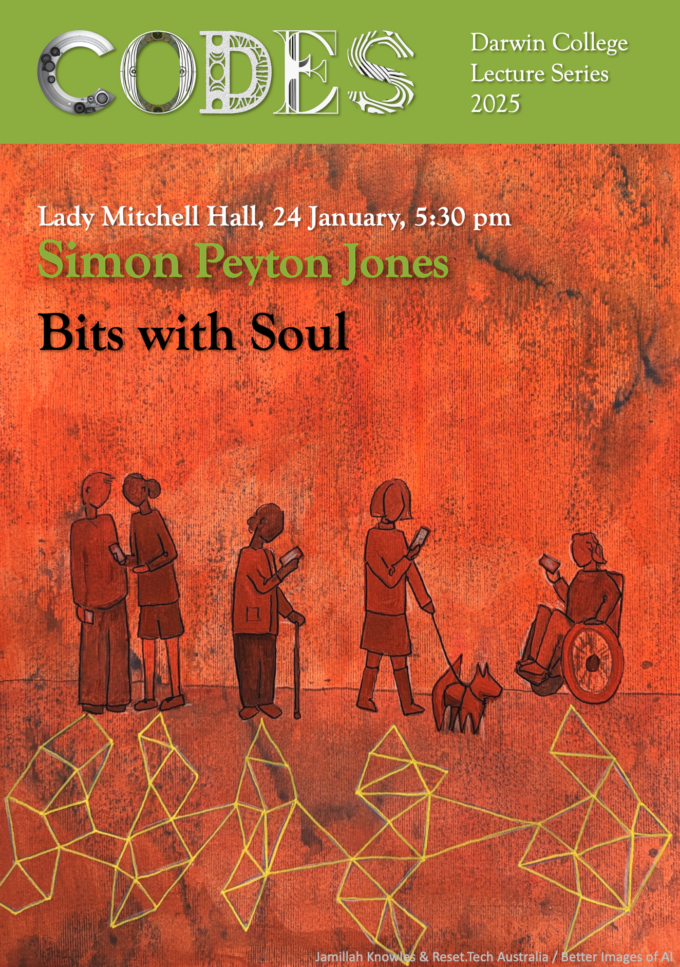

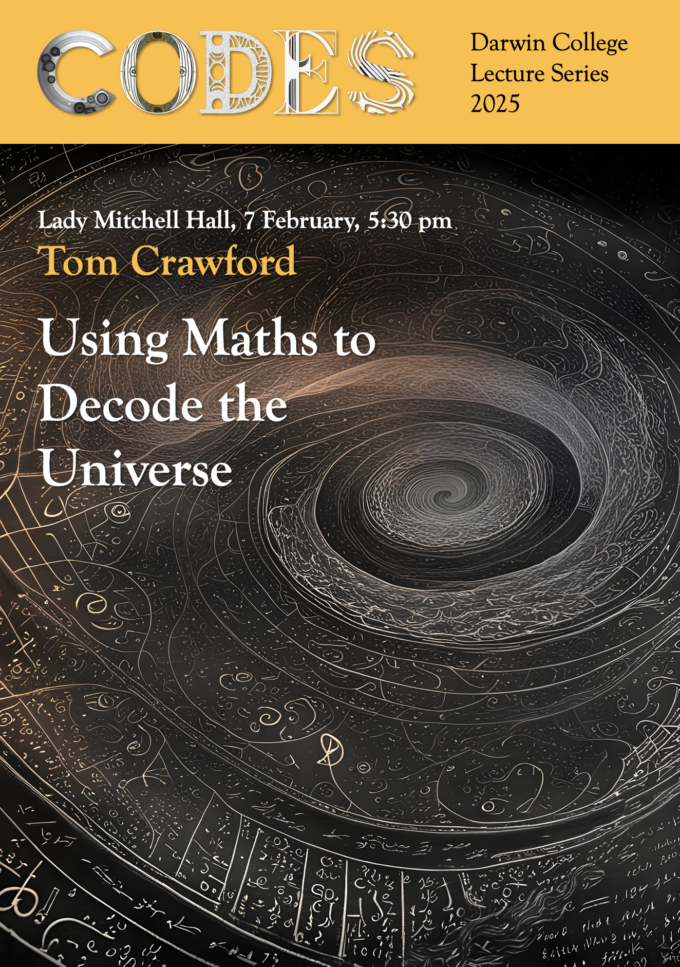
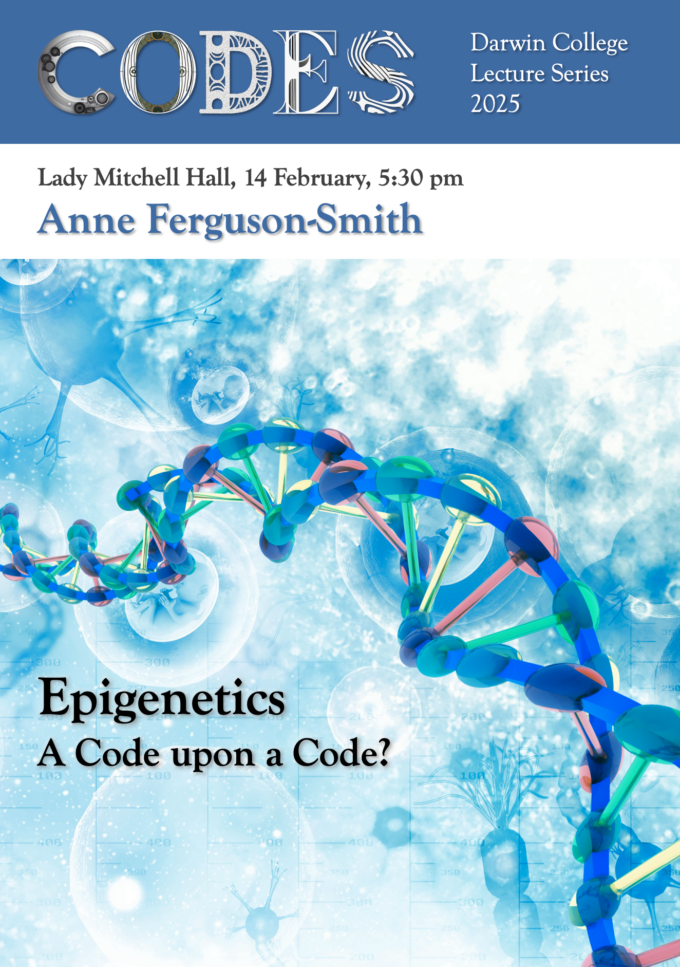

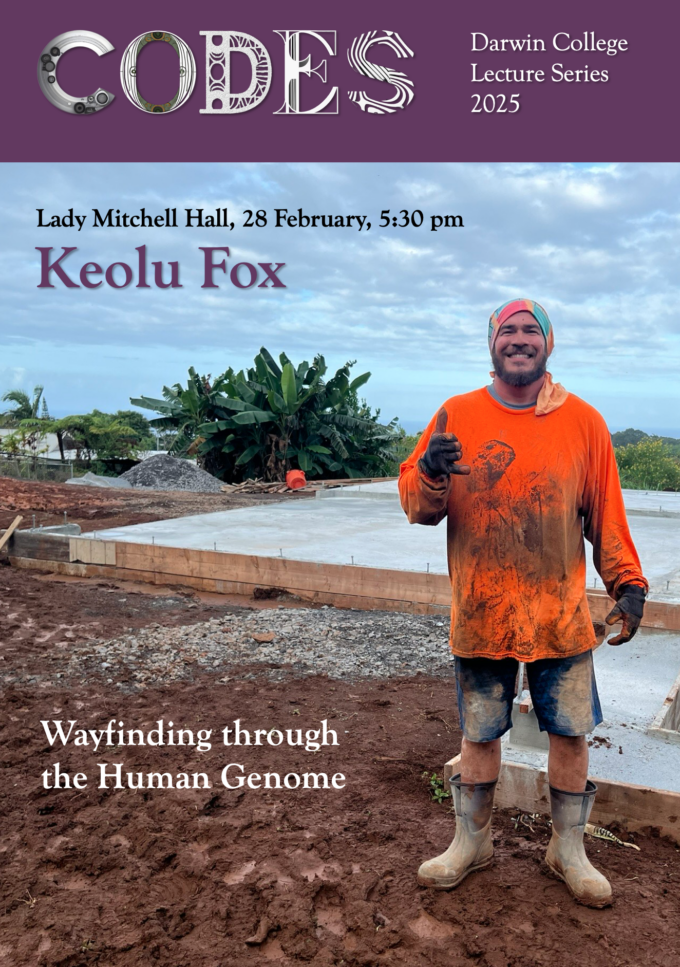

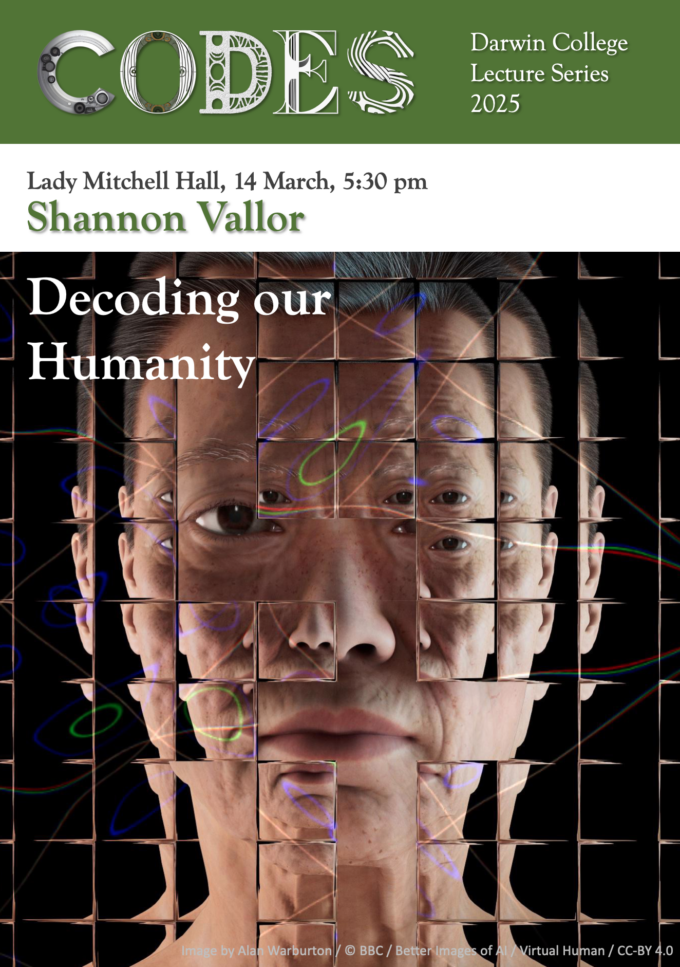
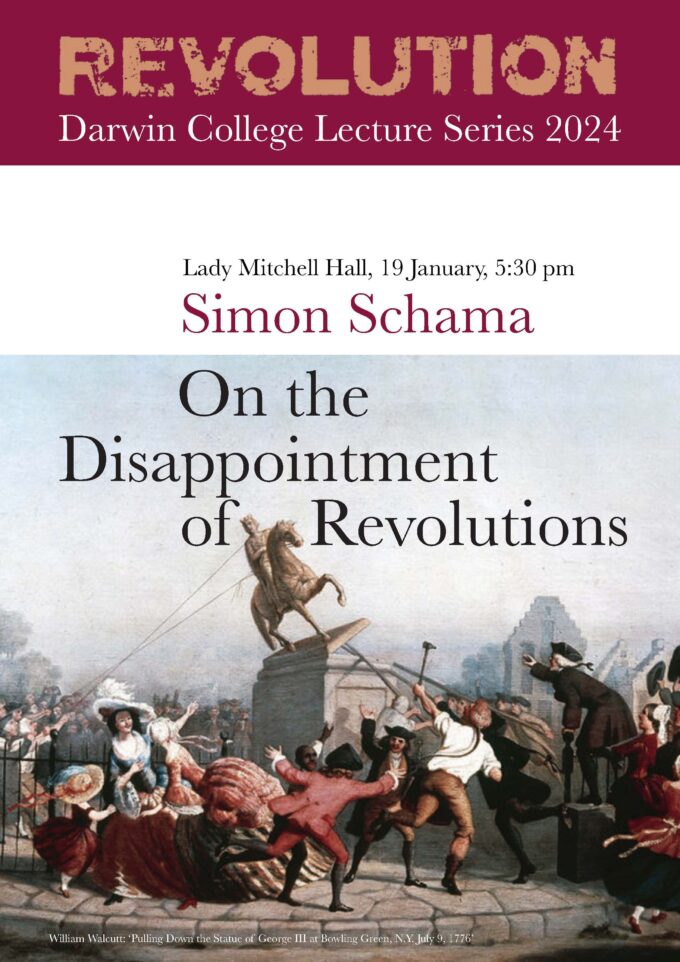
Explore our collection of past lectures
Since 1986, the Darwin College Lecture Series has provided an important annual contribution to Cambridge's intellectual conversation. Watch previous lectures on our YouTube channel.

